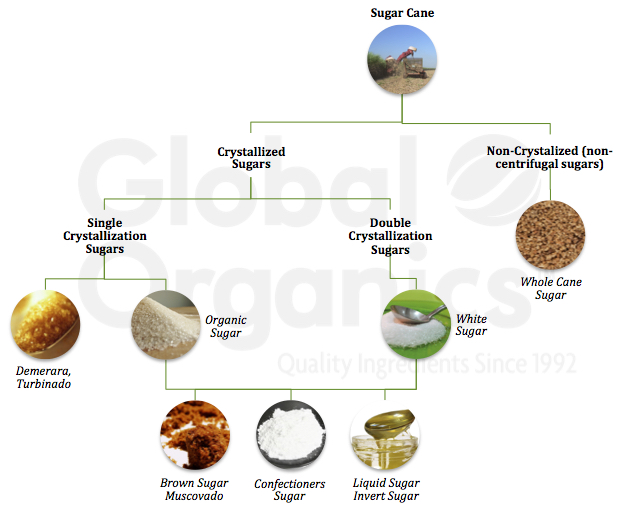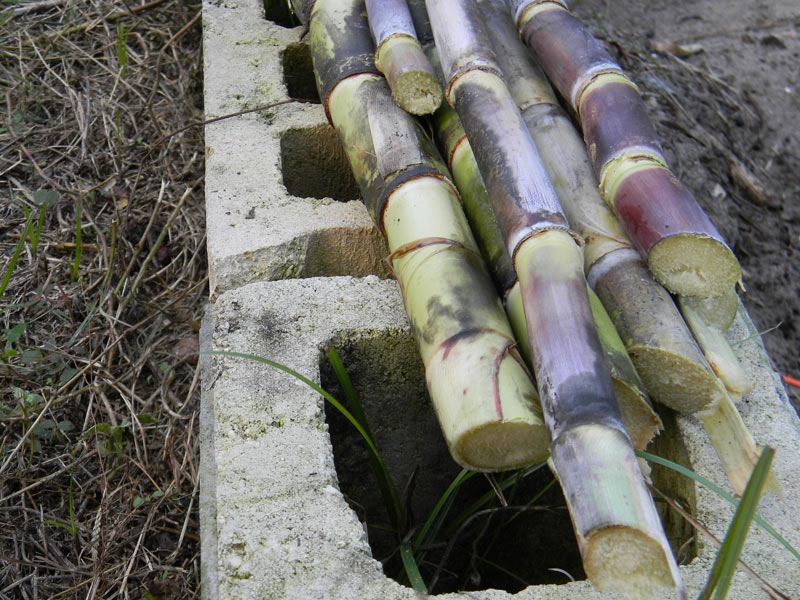Why Sugar and Cane Are Essential Ingredients in Baking and Cooking
Why Sugar and Cane Are Essential Ingredients in Baking and Cooking
Blog Article
Why Walking Stick Sugar Processing Chemicals Are Crucial for Modern Sugar Refining
The role of walking cane sugar handling chemicals in modern-day sugar refining can not be overemphasized, as they are indispensable to improving both the effectiveness of extraction and the overall top quality of the final item. Representatives such as phosphoric acid and certain flocculants are employed to remove contaminations, leading to sugar that not just fulfills customer assumptions however likewise sticks to sector criteria. The effects of these chemicals expand beyond top quality, touching upon market dynamics and ecological factors to consider. sugar and cane. This increases important concerns about the sustainability of such practices and their impact on the future of sugar production.
Function of Handling Chemicals
The efficiency of walking stick sugar handling pivots considerably on the tactical application of handling chemicals. These chemicals play an essential duty in improving the performance and quality of sugar extraction and refining. From the first stages of juice removal to the last filtration steps, processing chemicals promote various essential procedures.
In the extraction phase, chemicals such as phosphoric acid and calcium hydroxide are employed to optimize the information process, helping to eliminate pollutants and suspended solids from the cane juice. This not only improves the yield yet also ensures the quality of the last product. Furthermore, representatives like flocculants help in the quick settling of impurities, consequently enhancing the overall procedure.
Activated carbon and ion exchange materials offer to get rid of color and smell, making certain that the polished sugar meets customer top quality standards. Hence, the thorough selection and application of these chemicals are essential for attaining ideal end results in walking cane sugar handling.
Secret Sorts Of Chemicals
Cane sugar processing depends on a selection of essential chemicals that assist in each phase of production. These chemicals play vital duties in clarifying, bleaching, and cleansing the sugar extracted from cane.
One main group of chemicals includes flocculants, such as polyacrylamide, which help in the clarification process by advertising the aggregation and settling of impurities. Furthermore, calcium hydroxide is often utilized to reduce the effects of level of acidity and assist in the elimination of non-sugar parts.
Lightening representatives, such as triggered carbon and sulfur dioxide, are used to decolorize the syrup, causing a more clear last item. These chemicals assist remove shade compounds that may impact the sugar's appearance and bankability.
Additionally, phosphoric acid works as a pH regulatory authority during the processing phases, guaranteeing optimal problems for the chemical tasks involved in sugar extraction and filtration.
Other vital agents consist of edta (ethylenediaminetetraacetic acid), which chelates metal ions that can militarize undesirable responses, and salt hydroxide, which helps in pH control throughout the refining process. Collectively, these chemicals improve effectiveness and make sure a top quality cane sugar product.
Advantages for Sugar Top Quality
Typically ignored, the usage of particular processing chemicals considerably enhances the general high quality of cane sugar. These chemicals play a critical duty in refining procedures, ensuring that the last item meets rigorous industry standards for purity and preference.

Furthermore, processing chemicals aid in achieving a constant granulation and texture, which are critical for consumer acceptance. By managing the crystallization process, these chemicals ensure that the sugar sites crystals create consistently, bring about a more appealing item that dissolves well in different applications.
Additionally, making use of these chemicals can boost the shelf life of cane sugar by lessening wetness absorption and microbial growth. Overall, the strategic application of handling chemicals is essential for delivering top quality walking cane sugar that fulfills customer expectations and market needs.
Ecological Impact Factors To Consider

Moreover, the energy-intensive nature of sugar refining, compounded by chemical usage, typically leads to raised carbon discharges. This adds to climate change and elevates issues concerning the sustainability of present refining techniques. In addition, the sourcing of these chemicals might include techniques that threaten biodiversity, such as monoculture farming, which minimizes the strength of agricultural communities.

To minimize these effects, sugar refiners are significantly discovering lasting options and embracing finest methods that reduce chemical usage. Carrying out strenuous environmental administration systems can help ensure that the refining process aligns with ecological standards and promotes biodiversity. Inevitably, a well balanced method that prioritizes both sugar top quality and ecological stewardship is crucial for the long-lasting viability of the sugar market.
Future Trends in Refining
As the sugar sector grapples with the ecological challenges related to typical refining techniques, cutting-edge approaches are arising to boost both efficiency and sustainability. One substantial fad is the fostering of environment-friendly chemistry principles, which prioritize the use of safe, eco-friendly processing chemicals. This change not only reduces ecological influence however also addresses consumer demand for cleaner production techniques.
Another encouraging development is the application of innovative filtering modern technologies, such as membrane layer separation and adsorption processes. These techniques enhance the clearness and high quality of the sugar while lowering the volume of wastewater created during refining. Additionally, the integration of digital innovations, consisting of IoT and AI, is changing operational performance by allowing real-time tracking and predictive upkeep, thus reducing resource waste.
Furthermore, using byproducts from sugar refining, such as bagasse and molasses, is getting grip. These products can be transformed into biofuels or value-added items, adding to a round economic situation within the sector. Jointly, these trends signify a the original source shift in the direction of more lasting techniques that not only improve functional performance however additionally align with global sustainability objectives, ensuring the future feasibility of sugar refining.
Final Thought
Cane sugar handling chemicals are important in modern-day sugar refining, substantially enhancing the efficiency and high quality of sugar extraction. The tactical use these chemicals not just improves the purity and flavor of the end product but also ensures constant formation and texture. As the industry progressively prioritizes sustainability, the adoption of environmentally-friendly handling representatives is likely to form future patterns in refining, eventually leading to better products and prolonged life span for consumers.

Ultimately, a balanced strategy that focuses on both sugar top quality and environmental stewardship is important for the long-lasting viability of the sugar market.
Cane sugar processing chemicals are necessary in modern-day sugar refining, significantly enhancing the performance and top quality of sugar extraction.
Report this page